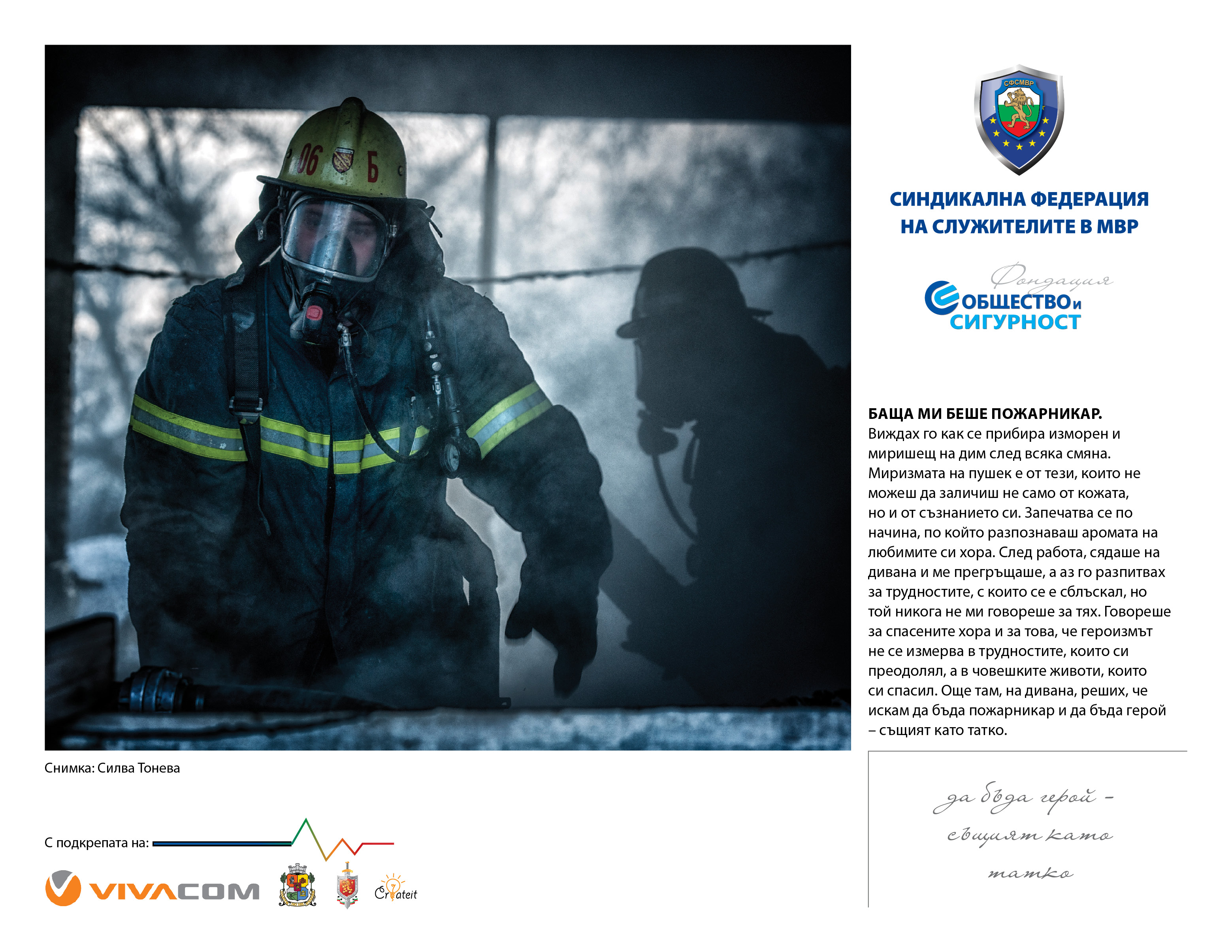- 01.09.2016
The issues in National System 112 in Bulgaria
In 2015, 4,686,390 emergency calls are accepted and only 1,987,576 are real. Who is responsible for the unreal signals received? Who educates the citizens? Who and how impose sanctions for…
Read Още- 19.07.2016
My father was a firefighter!
My father was a firefighter. I was seeing him at home tired and smelled of smoke after each shift. The smell of smoke is one of those you can not erase…
Read Още- 19.07.2016
I am a mother!
“I am a mother and my daughter is very proud that I’m a police woman. She knows that I look out not only for her safety and security, but also for…
Read Още- 19.07.2016
We, the Bulgarians!
“Do you know, we all Bulgarians, are sad people. We taunt the police, sing humiliating songs about police officers, spit it out and caricature the system, and when we are…
Read Още- 19.07.2016
The policeman, who chose the profession, because of the love to his father…
“Unlike many of my colleagues, no one in my family was not a policeman, but I made this choice, because of my father. My father creates and sculpts figures and…
Read Още- 19.07.2016
The lonely firefighters
Quite offten we can see firefighters who are fighting the firestorm and stand against it alone, but surounded by at least two or three fire trucks. Have you ever wondered…
Read Още- 30.03.2016
Managing traumatic stress: Coping with terrorism
Terrorism threatens a society by instilling fear and helplessness in its citizens. It seeks to hold a society or government hostage by fear of destruction and harm. When terrorist acts…
Read Още- 08.03.2016
Meet Mariela. One of the women sharing and living with those who care for us.
“My husband was forced to learn how to cope alone with stress at the workplace. He did it, because it was the only way to protect us. He did it,…
Read Още- 25.12.2015
The person behind the uniform: Ivo
In the first part of the series “The person behind the uniform” we are introducing you Ivo – a firefighter in Varna, beloved husband and father. The series will meet…
Read Още- 03.02.2015
Citizen participation in MI: Mission (im) possible!
The main issue which united representatives of trade unions, professional organizations and NGOs in terms of public order and security, is that the “security” service provided to citizens, is not…
Read Още- 03.02.2015
The failed reform!
Ministry of Interior is the only unreformed Ministry in Bulgaria, but also one of the ministries in which structural changes are the most numerous. One of the major structural changes…
Read Още

